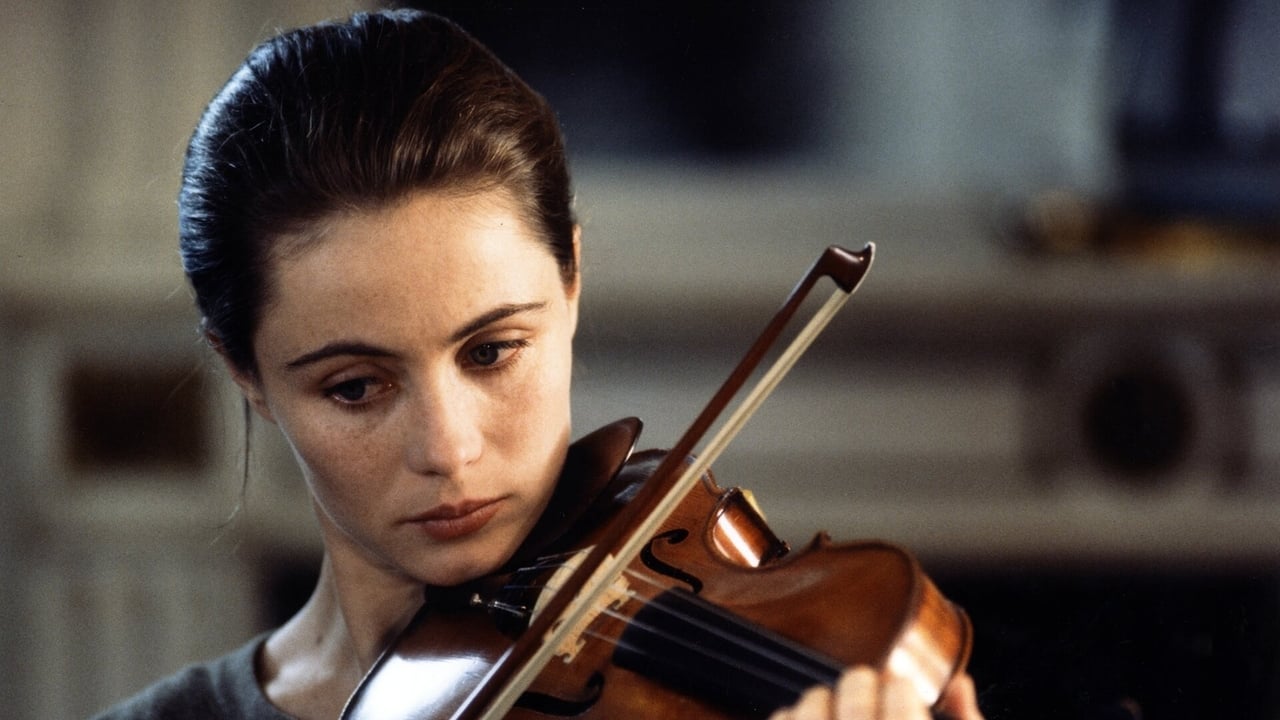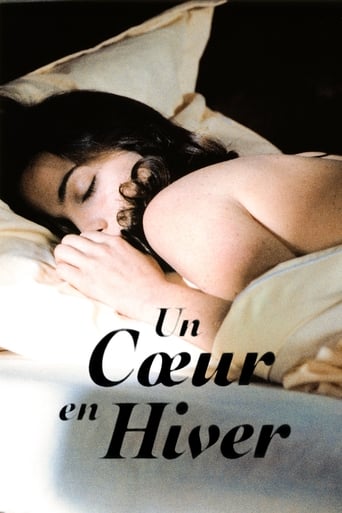



Self-important, over-dramatic, uninspired.
Good concept, poorly executed.
Brilliant and touching
A Brilliant Conflict
I read that Claude Sautet inspired himself in the Pechorin's Diaries, a part of Mikhael Lermontov's "A Hero Of Our Time". In Phoenix Cinema blog: "For those interested–to understand Stephan's character, read Lermontov's novel A Hero of Our Time. (The novel is even mentioned in the film.) Stephan is a modern-day version of Pechorin." Now Pechorin is a complex Byronesque character that has ambiguous but plausible reasons for his apparent "winter" heart. He is a formidable character in Russian literature (like Oneguine, for instance) and the paradox of his coldness is enough to make a film director/screen writer wanting to start something. This tip should be taken into account before engaging in more audacious explanations for the character of Stéphane.
View MoreBefore I say anything else, I must point out that I love Daniel Auteuil and have seen many of his films. In fact, I look for films with him in it, as I am almost always guaranteed a wonderful film. In this case, he plays against his wife of the time, the radiant Emmanuelle Béart. Now that I have said that, I regret that this is one of the rare cases where I didn't particularly care for the film. Despite there currently being a very glowing review for the film featured on IMDb (giving it, inexplicably, a 10--a score too often overused), I just found the film too slow and uninvolving. Apparently after reviewing more of the comments, people either adored it or disliked it. Auteuil plays a man who is a genius at fine-tuning and repairing violins. He is so good at what he does that he's sought out by people owning the best instruments in the world. The film begins with his business partner introducing Auteuil to his new mistress, Béart. A bit later in the film, Béart falls madly for Auteuil though the motivation for this is seemingly non-existent. That's because Auteuil is a bit of a schizoid personality and he relates much better to things than people. He is someone who is indifferent to friendships and relationships--a person who is pretty much unable or willing to fall in love. So why would she love him? Now it is possible that his actions are all an act and he really is just afraid of being hurt (psychologically speaking, this would make him an Avoidant personality). However, throughout the film there didn't appear to be much evidence of this but avoidants would also be very, very hard to get to know well. In actuality during the film it appeared he just didn't care that the incredibly sexy Béart adored him. So what you have in the film is a lady who on rare occasions throws herself at a man and the man reacts like he's a block of wood. And, considering that this is all done very, very slowly and deliberately, the film seem way too long and uninvolving. Technically, it was a pretty film (with nice music) but that's about all.
View MoreI think it is an engaging and thoughtful movie - the kind that you keep thinking about, long after you have finished watching. The plot deals with the central character's coldness in relationships with people around him. He is definitely gifted in what he does. He is sincere and hardworking. People around him tend to be friendly and caring. But it seems our guy has some intimacy issues he can't go beyond a certain level. I am not really sure as to what message did the movie want to convey. It can't just be - if you are cold in nature, you are a loser. I don't think Stéphane was cold by choice he couldn't just change his nature so as to make others happy. I found it odd that a person of such nature would speak with frankness and openness about these issues the way Stéphane tells Camille in the restaurant. His friendship with Hélène also seems unexplained - what was the basis did they expect it to go further? What struck as peculiar was attention given to details on mundane activities - like the craftsmanship involved in making musical instruments or dealing with the restaurant manager. In some ways, these elements helped in keeping one occupied and expectant of things to come. Daniel Auteuil's portrayal of Stéphane was very natural. Always immaculately dressed, the way he interacted, sometimes with a smirk on his face - it made you empathize with his character. Also at times you felt like saying - what's wrong with this guy? probably the kind of response director would have wanted to evoke from the audience. Emmanuelle Béart has acted brilliantly and looks amazingly beautiful. André Dussollier also put in a strong performance in his portrayal of Maxime. Dialogues are thoughtful - but at times their gravity made you feel that these are not the most natural of conversations. Cinematography is splendid with close shots of characters and focus on eye and facial expressions.
View MoreThis is one of the most accomplished movies I ever seen. Brilliant dialogs, wonderful acting, moving music, a perfect mix of sobriety, passion, psychological violence and reserve.At the heart of the movie, the character of Stephane is an enigma for the other characters and for the viewer. Who is he? What does he wants? Sautet doesn't embrace any psychological analysis for him: he could be neurotic, or a closet narcissist, or a perfect normal person. The director is very subtle in providing the viewer with plenty of little details about him, but refraining from pointing the finger at a single explanation. Still, the character is incredibly life-like and we comes to see him as it was a real person. It is worth noting that, although he wrote completely original stories, Sautet used to use real life, identifiable individuals as models for his characters.I've seen Un coeur en hiver many times, but still each time I discover something new. Arguably the best Sautet movie and one of the best movies ever.
View More